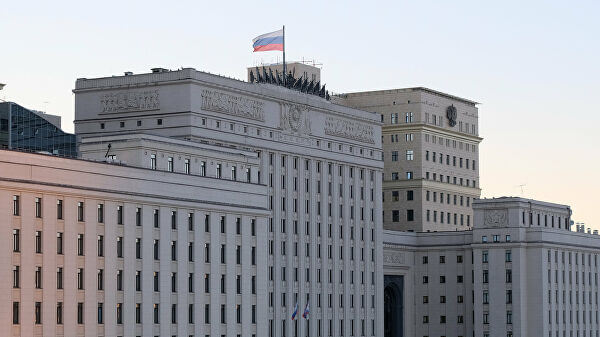The European Union announced that it “acknowledged” Moscow’s announcement that it would start working on opening its office in the Serbian Ministry of Defense. “Acknowledgement”, on the scale of European political speech, means something like – “we have heard, but we are not interested”, which is the last thing the EU should have said on this occasion. Or, if it only “acknowledges” such announcements, then at least it should stop being scandalized by “Russia’s increasingly pronounced malignant influence in the Balkans”, which it has been warning about for years in each of its reports, especially on Serbia.
Those who do not see anything bad and unusual in Moscow’s intention to open an office of its Ministry of Defense in the Ministry of Defense of Serbia, are mostly defending themselves with the fact that there is already a NATO office in Belgrade, so why not a similar Russian military office. Expected, but not at all convincing. NATO is a huge and very influential international organization, with which Serbia has had a contractual and partnership relationship since December 2006, within which it has reformed its entire defense sector and implemented a number of joint programs and exercises to improve its defense power. After all, NATO is one of the international organizations in which Serbia has a permanent mission and ambassador. The eventual arrival of people from the Russian Ministry of Defense would not be a counterpart to the NATO office in Belgrade, because it is a state (not an organization of states), which already has a large diplomatic and even military mission in Serbia within its embassy.
Would we look equally favorably on the wishes of America or Great Britain to establish their offices in the Serbian Ministry of Defense like on the Russian initiative? Because they, like Russia, are individual states that can naturally have the desire to enhance their military cooperation with Serbia. Can we, after Russia, expect China’s initiative to open a similar office in the Serbian Ministry of Defense, and how will we react to that initiative?
Without wanting to make this job easier for both the Russian and Serbian sides, it would be more logical to open an office of the CSTO (Collective Security Treaty Organization – Russian-Asian version of NATO) in Belgrade, but it is obvious that this idea is not in circulation. Maybe because within the CSTO itself, there is a raging war with hundreds of dead, between one current and one former member – Armenia and Azerbaijan, and internal unrest is flaring up in another member (Belarus). And perhaps because Russia, as the undisputed leader of this alliance, has neither the idea nor the ability to resolve conflicts that are destroying its “inner backyard.” And maybe that is exactly why it needs to step out of hell in its backyard and, with a new military initiative in connection with Serbia, show its own and international public that it still has influence outside its borders.
While this is only an internal matter of Russia and its interests, for us, much more important is the question of what is the interest of Serbia to enter into such arrangements. If a Russian office in the Serbian Ministry of Defense were really opened, how could we reject a new, similar initiative from Moscow? For example, should the Russian FSB request its office in the BIA (official office, not only agents of influence), or should Russia’s foreign intelligence service – SVR, open an office in the Serbian Ministry of Foreign Affairs?
If we believe that Russia is our brotherly and friendly country and that we do not hide anything from them, why would they not formalize their work in this way, when they are already very actively engaged in offensive intelligence activities in Serbia? Or do we think that such activities are not hostile to Serbia, but only represent their effort not to spend our modest resources, so they would work with their own?
It was also mentioned that the arrival of Russian officials in the Serbian Ministry of Defense would be in line with the policy of military neutrality of Serbia. This neutrality, even though it is only a letter on paper, and not an internationally confirmed agreement, even as such does not imply a chaotic defense policy. The logic of Serbia’s military neutrality that we are “good” with everyone necessarily turns into its opposite, that no one believes us, because we show ourselves as unreliable partners, whether it is the West, NATO, or Russia and China.
Allowing Russia to open a special military office in Belgrade, even though the job is already being done by their diplomats and military envoys within the embassy, would be a precedent with certain and bad consequences for Serbia’s strategic interests. Unless we include our observer status in the mentioned CSTO (together with Afghanistan) and the development of relations with the members of that organization in which it is still peaceful – Kazakhstan, Kyrgyzstan and Tajikistan.
That is the question of the real strategy of national security, we do not mean here an outdated and obscure document of the same name, which was adopted by the Assembly a year ago. It is really not necessary for all of us to know what the real strategy is, but we must believe that the head of state, as well as the supreme commander, knows that very well and based on that he is making moves that are in the interest of Serbia. He has had the huge support of citizens for years, even 60%, but he is 100% responsible for the direction the country is going.
